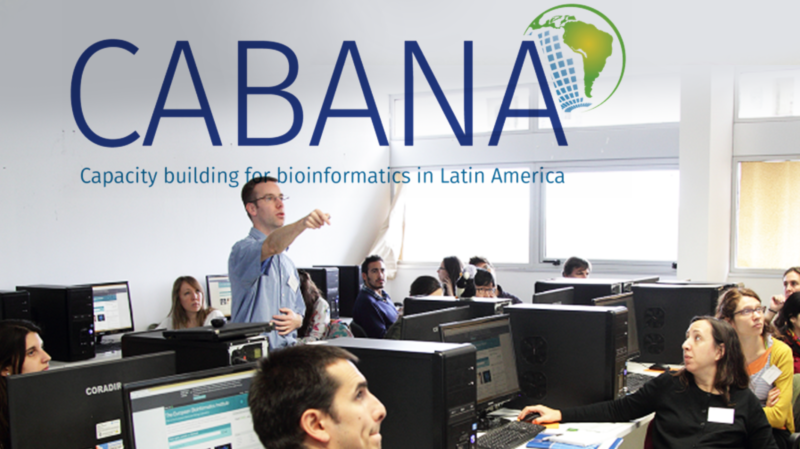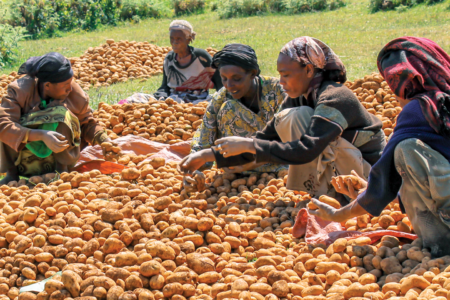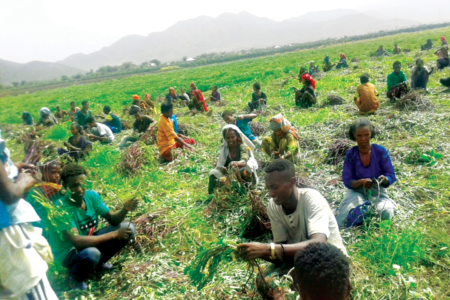
Data-driven biology could have a major impact on health, agriculture, and environmental management, but Latin American scientist have yet to fully benefit from this new approach. The ‘CABANA’ project aims to promote the use of bioinformatics in lead institutions, which will form hubs for wider dissemination throughout the continent.
Background
Bioinformatics is an interdisciplinary field that links biological data with techniques for information analysis, storage and distribution. It aids the interpretation and understanding of large volumes of biological data, such as genome sequencing and measuring gene expression patterns. This hybrid science has enormous potential to address Latin America’s three key development challenges.
Firstly, there is an urgent need to fight neglected tropical diseases, such as Zika virus, malaria and dengue fever that affect humans, but also on plant diseases indirectly affecting human health through their effects on crops. Bioinformatics can help scientists understand the genomic make-up of pathogens and the susceptibility of individuals to infections, but there has been little attention paid to collecting genome data from Hispanics and indigenous peoples. Secondly, data-driven biology has potential to promote sustainable food production, particularly by identifying varieties that are resilient to the impacts of climate change. Finally, the region harbors more than 30% of the world’s biodiversity. Scientist need to study natural systems efficiently to acquire a good understanding of how resources can be used sustainably, while continuing to preserve unique ecosystems. The International Potato Center (CIP) will actively work on all these challenges.
The ‘Capacity building for bioinformatics in Latin America’ (CABANA) project is designed to strengthen local capacity for data-driven biomolecular research and thereby to speed up efforts to overcome these current obstacles to development.
Objectives
CABANA’s vision is to address the current slow implementation of data-driven biology in Latin America by creating a sustainable capacity-building program focusing on the three key development challenges: communicable diseases, sustainable food production, and protection of biodiversity. The main aim is to enable scientists, including from CIP and its partners, to become more competent at analyzing and interpreting biomolecular data and placing their own data in the public domain. CIP, and other partner scientists will in turn, help build capacity for research management and develop a sustainable bioinformatics research infrastructure in Latin America.
Approach
The project brings together a consortium of ten partners across six Latin American countries and builds wider collaborations, for example with scientists in the UK. CIP researchers and others from Latin America will undertake six-month secondments to the European Bioinformatics Institute to develop their bioinformatics skills. CIP scientists will also attend ‘train the trainer’ workshops, with view to developing a network of bioinformatics training centers throughout Latin America. Short courses, hosted by the partner institutions, such as CIP, will focus on research management as well as development of bioinformatics competencies. Finally, the program will create e-learning resources to inspire the next generation of bioinformatics-aware researchers. Activities will encourage participation from minority groups, including women and indigenous peoples.
Expected outcomes
Secondments will be the main route to developing lasting collaborations. Latin American researchers will be invited to apply for six-month fellowships at the European Bioinformatics Institute to work on a specific project relating to the three key development challenges. As the network grows, the program will support transnational secondments within Latin America. ‘Train the trainer’ activities will underpin the entire project by transforming scientists into effective and confident trainers who will share their knowledge through a program of workshops and short courses. Many of the trainers will have undertaken a secondment.
Annual workshops and short courses will be held in each participating country, with CIP responsible for the workshop held in Peru. Hosted by different institutes, these will focus on the topics of greatest interest locally. Some will be ‘summit’ meetings on special topics, including how to inspire the next generation of bioinformatics-aware life scientists, and how to develop a sustainable bioinformatics research infrastructure. Development of e-learning tools will provide a shared resource and catalyze the roll-out of bioinformatics education to universities, as well as supporting ongoing collaboration with partners. These resources will include a web-based system to support workflow-based courses.
As with the other consortium members, the participation of CIP was selected on the basis of its strong links with the global research community, policymakers and other sectors. This will help build a broad network and develop new collaborations. Data-driven biology depends on collaboration and open sharing of information, and there is a growing number of initiatives aiming to combine data stewardship with the goal of enhancing research and contributing to better healthcare and sustainable development globally. Current programs focus on the need for capacity-building and CABANA takes a similar approach to create a bioinformatics community in Latin America that will contribute to both regional and global challenges.
Key outputs
| OUTPUTS |
| Secondment of Latin American scientists to the European Bioinformatics Institute |
| Train the trainer activities to disseminate knowledge |
| Workshops/short courses – one per participating country per year – to build a community of practice |
| E-learning resources to catalyze the roll-out of bioinformatics education and support ongoing collaboration. |
Contact
Jan Kreuze
CIP, Peru
j.kreuze@cgiar.org
Thanks to our donors



